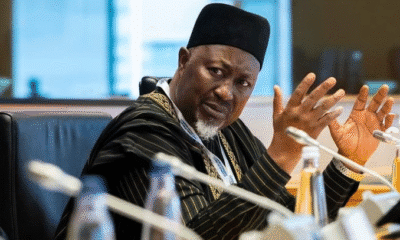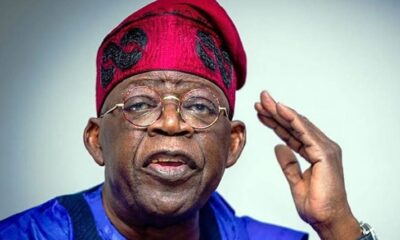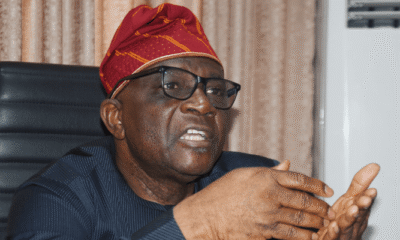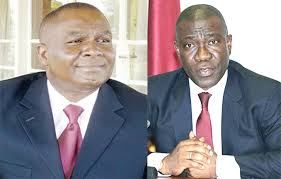Breaking News
President Tinubu Names Multi-agency Team For US-Nigeria Security Talks

President Bola Tinubu has constituted Nigeria’s delegation to the U.S.–Nigeria Joint Working Group, a security-focused committee designed to deepen bilateral cooperation and confront Nigeria’s worsening security challenges.
The move follows a high-profile official visit to Washington, D.C., earlier this month, led by the National Security Adviser, Mallam Nuhu Ribadu, where talks centred on crisis points spanning terrorism, banditry, intelligence sharing and internal security reinforcement.
The committee positions Ribadu as chairman of the Nigerian side, coordinating a multi-agency team drawn from critical federal institutions and security command structures.
According to the directive, Ribadu will lead Nigeria’s participation, supported by senior cabinet members, intelligence chiefs and law-enforcement commanders.
The approved members include Minister of Foreign Affairs, Yusuf Tuggar; Minister of Defence, Mohammed Badaru;
Minister of Interior, Olubunmi Tunji-Ojo; Minister of Humanitarian Affairs and Poverty Alleviation, Bernard M. Doro,
Chief of Defence Staff, General Olufemi Oluyede; Director-General of the National Intelligence Agency, Mohammed Mohammed and Inspector-General of Police, Kayode Egbetokun.
The President also designated secretariat roles to officials within Nigeria’s foreign mission and national security office.
The secretariat of the Nigerian side will be anchored by Ms Idayat Hassan of the Office of the National Security Adviser and Mr Paul Alabi of the Nigerian Embassy in the United States.
Speaking earlier on the security alignment, Ribadu had underscored the importance of unified strategy, proactive intelligence and international cooperation.
“The joint working group aims to align multi-sector responses and strengthen security systems through collaborative frameworks between Nigeria and the U.S.,” a source familiar with earlier Washington engagements told Naija News.
President Tinubu, while approving the delegation, reinforced that Nigeria must treat the alliance as frontline priority, not ceremony.
He ordered members to work closely and diligently with their American counterparts to ensure swift execution of common initiatives.
“Members are to ensure the effective and timely implementation of all agreed initiatives across relevant sectors,” the directive read.
The President stressed that deliverables must cut across intelligence, defence reforms, community security realignment and emergency humanitarian response for vulnerable populations.
Partnership Seen as Strategic Reset, Not Sentiment
Security experts described the composition as “pragmatic, competence-driven and partnership-aligned,” reflecting Tinubu’s increasing appetite for coordinated global security scaffolding.
Unlike undocumented memos or informal party circuits—this delegation is backed by formal presidential approval and multi-agency alignment.
The new committee underscores Tinubu’s declared approach of redirecting national security focus from fragmented systems to strategic global cooperation hubs.

























